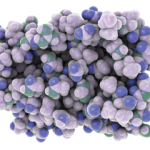Objective: Molecular medicine raised expectations for strategically targeted biologic agents in systemic lupus erythematosus (SLE), but clinical trials have been disappointing and difficult to interpret. Most studies add investigational agents to various, often effective, standard therapy immunosuppressants used at baseline, with unknown treatment interactions. Eliminating polypharmacy in trials of active lupus remains controversial. The authors undertook the “Biomarkers of Lupus Disease Study” to test the withdrawal of immunosuppressants as a novel approach to rendering SLE trials interpretable.
Methods: Temporary steroids were given to a group of 41 patients with active, non-organ-threatening SLE flare (group A) while background immunosuppressants were withdrawn. Time to loss of disease suppression (flare) and safety were evaluated. Standard therapy was immediately resumed when symptoms recurred. The immunologic impacts of standard therapy were studied at baseline by multiplex assay, enzyme-linked immuno-sorbent assay and messenger RNA array in both group A patients and 62 additional patients who donated a single sample (group B).
Results: Patients with lower or higher baseline disease activity had median times to flare of 71 or 45 days, respectively; 40 of 41 patients (98%) had disease flares by six months. All flares were treated and resolved within six weeks. No serious adverse events occurred from flare or infection. Type I interferon (IFN), Th17 and B lymphocyte stimulator pathways tracked together. Baseline immunosuppressants had distinct impacts on Th17 and B lymphocyte stimulator, depending on IFN signature.
Conclusion: Trials in active, non-organ-threatening SLE can safely withdraw background treatments if patients who have disease flares are designated nonresponders and returned to standard therapy. Immunologic effects of standard therapy vary between IFN-defined subsets. These findings provide a strategy for minimizing or optimizing treatment combinations in lupus trials and clinical care.
Excerpted and adapted from:
Merrill JT, Immermann F, Whitley M, et al. The biomarkers of lupus disease study: A bold approach may mitigate interference of background immunosuppressants in clinical trials. Arthritis Rheumatol. 2017 Jun;69(6):1257–1266.


